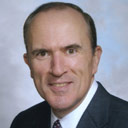Francis J Serbaroli

May 09, 2005 | New York Law Journal
Health LawFrancis J. Serbaroli, a partner at Cadwalader, Wickersham & Taft, writes that medical mills, often controlled by unlicensed individuals, bill for services never rendered, provide unnecessary or poor quality services, or provide services that are performed by unqualified individuals. These mills are frequently supported by runners and unscrupulous lawyers, and, in some of these operations, there is mounting evidence of the involvement of organized crime.
By Francis J. Serbaroli
13 minute read

September 27, 2011 | New York Law Journal
Confidentiality of Hospital Quality Assurance MaterialsFrancis J. Serbaroli, in his Health law column, reviews the statutory confidentiality privilege that protects a hospital's quality assurance activities from discovery in malpractice actions. He notes that the privilege has to be affirmatively asserted by the hospital, and discusses ways that the privilege can be unintentionally waived.
By Francis J. Serbaroli
15 minute read
June 16, 2010 | New Jersey Law Journal
Health Care Reform Law's Anti-Fraud ProvisionsWe have covered just some of PPACA's anti-fraud and program integrity provisions. The law contains many other sections that attempt to address this seemingly intractable problem, which continues to devour far too many health care dollars each year.
By Francis J. Serbaroli
10 minute read

September 30, 2009 | New York Law Journal
Health LawFrancis J. Serbaroli, a shareholder at Greenberg Traurig, writes: In its continuing efforts to maximize revenue collection, New York State has been aggressively auditing insurers to determine if they have accurately paid statutory surcharges on bills for medical services provided to patients by licensed facilities such as hospitals, clinics, ambulatory surgery centers, and other providers. Payors facing these audits have repeatedly expressed frustration over the fact that they didn't understand what was happening during their audit until it was too late and they faced a huge liability. Sometimes, it's not that the payor or provider did anything wrong, but that it didn't clearly prove to the outside auditor that it had done everything right.
By Francis J. Serbaroli
13 minute read

March 31, 2005 | Law.com
Health LawFrancis J. Serbaroli, a partner at Cadwalader, Wickersham & Taft, writes that the health care landscape in New York has undergone dramatic changes over the past 15 years. Many formerly independent hospitals have merged, been taken over or have been absorbed into larger systems.
By Francis J. Serbaroli
9 minute read

November 24, 2009 | New York Law Journal
Health LawFrancis J. Serbaroli, a shareholder in Greenberg Traurig, offers an overview of the law and the proposed regulations, which he notes are quite complex. GINA, he cautions, opens up a wide array of new compliance requirements, and it is no longer enough for health insurers and health benefit plans to comply with HIPAA and state law requirements.
By Francis J. Serbaroli
11 minute read
July 27, 2006 | New York Law Journal
Health LawFrancis J. Serbaroli, a partner at Cadwalader, Wickersham & Taft, writes: It is a problem that has arisen much too often, sometimes with tragic consequences to unsuspecting patients. A physician is disciplined for professional misconduct or incompetence by one state, only to move to another state and resume practicing. Despite various federal and state efforts to prevent this, some sanctioned physicians still manage to evade detection.
By Francis J. Serbaroli
10 minute read

November 29, 2004 | New York Law Journal
Health LawFrancis J. Serbaroli, a partner at Cadwalader, Wickersham & Taft, writes that defining excessive executive compensation in the not-for-profit arena may be as difficult a task as the Supreme Court's many efforts at defining what constitutes hard-core pornography.
By Francis J. Serbaroli
13 minute read
Trending Stories
- 1Alex Spiro Accuses Prosecutors of 'Unethical' Comments in Adams' Bribery Case
- 2Cannabis Took a Hit on Red Wednesday, but Hope Is On the Way
- 3Ben Brafman Defending Celebrity Rabbi in Lawsuit by Miami Hotel
- 4People in the News—Dec. 23, 2024—Barley Snyder, Marshall Dennehey
- 5How I Made Office Managing Partner: 'Be a Lawyer First, Foremost and Always,' Says Matthew McLaughlin of Venable
More from ALM
- Scan In Progress: Litigators Leverage AI to Screen Prospective Jurors 1 minute read
- Legal Speak at General Counsel Conference East 2024: Match Group's Katie Dugan & Herrick's Carol Goodman 1 minute read
- Legal Speak at General Counsel Conference East 2024: Eric Wall, Executive VP, Syllo 1 minute read



